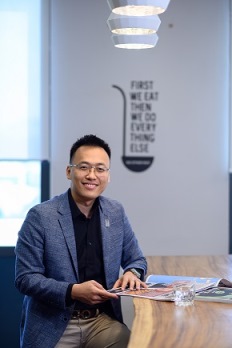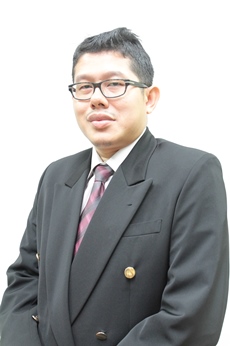Total Visits : 5728
| KEYNOTE SPEAKERS |
Keynote Speaker 1: Professor Keiichi Ishihara (Kyoto University, Japan)
.png) Biography:
Biography:
Dr. Keiich N. Ishihara graduated from the Department of Metal Science and Technology, Faculty of Engineering, Kyoto University, and received Ph.D. in metastable materials. After moving to the Graduate School of Energy Science, he started working on energy system analysis and planning. He led a team of zero-emission scenarios from 2008 to 2013 and published the world zero-emission scenarios. Since then, he has studied the development of new materials for energy and environments. He has also been engaged as the dean of the Graduate School of Energy Science between 2017 and 2021. Currently, he is the Chairperson of the Department of Socio-Environmental Energy Science at the Graduate School of Energy Science, Kyoto University.
Title: A Possible Carbon Neutral Energy System in 2050 Japan
Abstract:
In 2021, Prime Minister Yoshihide Suga declared a new goal for the country to reduce greenhouse gas emissions to effectively zero by 2050. However, the government has not shown us the path details and the energy mix for 2050. On the other hand, the Kyoto University team published the Zero-emission energy scenario by 2100 in 2013 by developing the minimum CO 2 optimization model [1]. In this model, we considered the technologies, including the developing stage. The major constraint was the yearly investments. Furthermore, the hourly balance between supply and demand is considered for one year in the electricity sector. One of the critical drivers of reducing CO2 emissions is the decreasing population between 2050 and 2100.
In this study, modifying the previous study, the carbon-neutral target of 2050 based on state-art technologies was considered. To achieve the Carbon Neutral Energy System in Japan by 2050, the investment will be 20 trillion yen per year and 560 trillion yen for 28 years. Even installing Solar PV, Wind, and Nuclear for power generation, we need to use thermal by hydrogen and hydrogen derived fuels.
Technological barriers are in the non-energy sectors of Steelmaking, Chemicals, and Cement industries. We should accelerate the
development of these technologies. We need to develop hydrogen infrastructure and secure hydrogen resources outside of Japan.
Reference:
[1] Qi, Zhang. “Future zero-carbon energy systems in Japan with different nuclear power development scenarios.” (2014).
Keynote Speaker 2: Mr. Ong Hang Ping (CEO, Sunview Group Berhad)
Executive Director/Chief Executive Officer
 Biography:
Biography:
Ong Hang Ping received Bachelor of Electrical Engineering from University of Malaya. He is currently the Executive Director/Chief Executive Officer of Sunview Group since 2021. He is a registered Graduate Engineer of the Board of Engineers Malaysia, and Grid-connected solar photovoltaic certificate holder since 2014. He has approximately 13 years of experience in the renewable energy sector. Ong Hang Ping is also the Director and shareholder of Sunview in growing and developing business operations since 2015. He is involved in overseeing Sunview’s day-to-day operations, developing business strategies and providing technical advice for Solar PV facility projects. He is also certified by ISPQ (institute for sustainable power quality), which has been accredited for the design and installation of grid connected photovoltaic since 2010.
Title: Outlook on Renewable Energy in Malaysia
Abstract: Globally, Renewable Energy has established a strong foothold in Western Country. In Malaysia, the government has implemented various incentives to drive Renewable Energy (RE) adoption in achieving carbon neutral goal by 2050. However, there are still rising concern for ESG & RE consideration that will likely hinder the growth of RE. Join us to learn about the journey to continuous RE integration.
Keynote Speaker 3: Professor Dr. Mohd Amran Bin Mohd Radzi (Universiti Putra Malaysia)
 Biography:
Biography:
Prof. Dr. Mohd Amran Mohd Radzi received his BEng. and his MSc. degrees from Universiti Putra Malaysia (UPM), and his PhD degree in 2010 from University of Malaya. He is currently a Professor at Department of Electrical and Electronic Engineering, Universiti Putra Malaysia (UPM). He is also attached with Advanced Lightning, Power and Energy Research (ALPER) Centre, UPM. His research and teaching interests are power electronics, power quality, and renewable energy. He has authored and co-authored over 200 journals and conference proceedings. He has been and supervising more than 70 PhD and Master candidates. He is actively in research and consultation works in more than 40 projects in amount of almost RM 8 million. Prof. Amran is also a Senior Member of IEEE and a Chartered Engineer, U.K.
Title: Optimising Solar Photovoltaic Generation in Addressing Challenges of Energy Trilemma: Maximum Power Point Tracking
Abstract:
Energy trilemma provides huge challenges for policy makers and implementers to reform the energy systems. One of the key efforts is to improve renewable energy (RE) participation, and the growth of solar photovoltaic (PV) power generation can be seen clearly and its increased generation could contribute significantly to supply electricity. In PV systems, one of the focuses is currently on maximizing its power generation and extracting the maximum available power can be applicable through implementation of maximum power point tracking (MPPT) techniques. Therefore, the keynote session will address the strategies of facing energy trilemma and followed by roles of MPPT in optimising extraction of power from PV. A few recent works done will be presented to finally address significant improvement of PV systems under both uniform and partial shading conditions.